Remembering Saint Monica, mother of the great Saint Augustine of Hippo today, I re-read the account Augustine gave of his mother’s death and his tribute to her in the Confessions (9.12). The intimacy Augustine portrays between he and God and he and his mother is beautiful and very striking. Truly, grace at work.
![St Monica Andrea Verrocchio[1].jpg](https://communio.stblogs.org/assets_c/2010/08/ St Monica Andrea Verrocchio[1]-thumb-285x343-7110.jpg)
Augustine writes of his mother:
I closed her eyes; and there flowed in a great sadness on my heart and it was passing into tears, when at the strong behest of my mind my eyes sucked back the fountain dry, and sorrow was in me like a convulsion. As soon as she breathed her last, the boy Adeodatus burst out wailing; but he was checked by us all, and became quiet. Likewise, my own childish feeling which was, through the youthful voice of my heart, seeking escape in tears, was held back and silenced. For we did not consider it fitting to celebrate that death with tearful wails and groanings. This is the way those who die unhappy or are altogether dead are usually mourned. But she neither died unhappy nor did she altogether die. For of this we were assured by the witness of her good life, her “faith unfeigned,” and other manifest evidence.
What was it, then, that hurt me so grievously in my heart except the newly made wound, caused from having the sweet and dear habit of living together with her suddenly broken? I was full of joy because of her testimony in her last illness, when she praised my dutiful attention and called me kind, and recalled with great affection of love that she had never heard any harsh or reproachful sound from my mouth against her. But yet, O my God who made us, how can that honor I paid her be compared with her service to me? I was then left destitute of a great comfort in her, and my soul was stricken; and that life was torn apart, as it were, which had been made but one out of hers and mine together.
When the boy was restrained from weeping, Evodius took up the Psalter and began to sing, with the whole household responding, the psalm, “I will sing of mercy and judgment unto thee, O Lord.” And when they heard what we were doing, many of the brethren and religious women came together. And while those whose office it was to prepare for the funeral went about their task according to custom, I discoursed in another part of the house, with those who thought I should not be left alone, on what was appropriate to the occasion. By this balm of truth, I softened the anguish known to thee. They were unconscious of it and listened intently and thought me free of any sense of sorrow. But in thy ears, where none of them heard, I reproached myself for the mildness of my feelings, and restrained the flow of my grief which bowed a little to my will. The paroxysm returned again, and I knew what I repressed in my heart, even though it did not make me burst forth into tears or even change my countenance; and I was greatly annoyed that these human things had such power over me, which in the due order and destiny of our natural condition must of necessity happen. And so with a new sorrow I sorrowed for my sorrow and was wasted with a twofold sadness.
So, when the body was carried forth, we both went and returned without tears. For neither in those prayers which we poured forth to thee, when the sacrifice of our redemption was offered up to thee for her — with the body placed by the side of the grave as the custom is there, before it is lowered down into it — neither in those prayers did I weep. But I was most grievously sad in secret all the day, and with a troubled mind entreated thee, as I could, to heal my sorrow; but thou didst not. I now believe that thou wast fixing in my memory, by this one lesson, the power of the bonds of all habit, even on a mind which now no longer feeds upon deception. It then occurred to me that it would be a good thing to go and bathe, for I had heard that the word for bath [balneum] took its name from the Greek balaneion, because it washes anxiety from the mind. Now see, this also I confess to thy mercy, “O Father of the fatherless”: I bathed and felt the same as I had done before. For the bitterness of my grief was not sweated from my heart.
Then I slept, and when I awoke I found my grief not a little assuaged. And as I lay there on my bed, those true verses of Ambrose came to my mind, for thou art truly,
“Deus, creator omnium,
Polique rector, vestiens
Diem decoro lumine,
Noctem sopora gratia;
Artus solutos ut quies
Reddat laboris usui
Mentesque fessas allevet,
Luctusque solvat anxios.”
“O God, Creator of us all,
Guiding the orbs celestial,
Clothing the day with lovely light,
Appointing gracious sleep by night:
Thy grace our wearied limbs restore
To strengthened labor, as before,
And ease the grief of tired minds
From that deep torment which it finds.”
And then, little by little, there came back to me my former memories of thy handmaid: her devout life toward thee, her holy tenderness and attentiveness toward us, which had suddenly been taken away from me — and it was a solace for me to weep in thy sight, for her and for myself, about her and about myself. Thus I set free the tears which before I repressed, that they might flow at will, spreading them out as a pillow beneath my heart. And it rested on them, for thy ears were near me — not those of a man, who would have made a scornful comment about my weeping. But now in writing I confess it to thee, O Lord! Read it who will, and comment how he will, and if he finds me to have sinned in weeping for my mother for part of an hour — that mother who was for a while dead to my eyes, who had for many years wept for me that I might live in thy eyes — let him not laugh at me; but if he be a man of generous love, let him weep for my sins against thee, the Father of all the brethren of thy Christ.
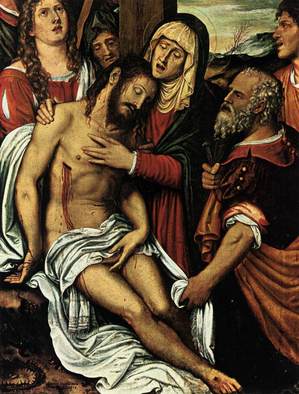 O God, by whose grace Saint Joseph of Arimathea was emboldened to ask for the sacred Body of our Lord Jesus Christ, that together with Saint Nicodemus he might prepare it for burial and lay it in his own tomb, give us such an increase of faith and courage that we may not fear to bear reproach for the sake of Christ,but rather may serve Him with sincere devotion all the days of our life.
O God, by whose grace Saint Joseph of Arimathea was emboldened to ask for the sacred Body of our Lord Jesus Christ, that together with Saint Nicodemus he might prepare it for burial and lay it in his own tomb, give us such an increase of faith and courage that we may not fear to bear reproach for the sake of Christ,but rather may serve Him with sincere devotion all the days of our life.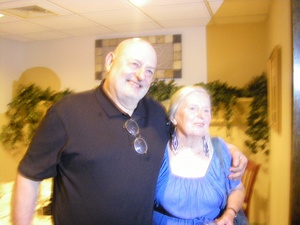
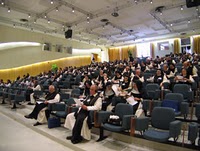

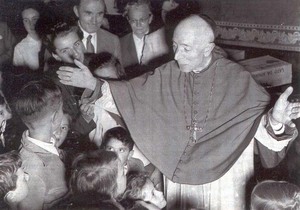
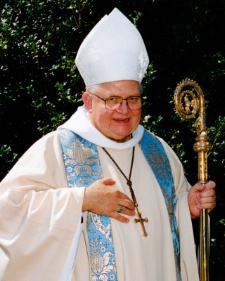
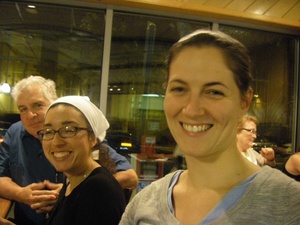
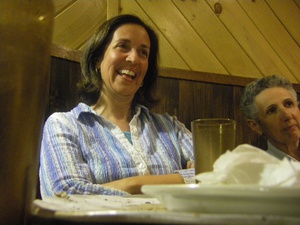
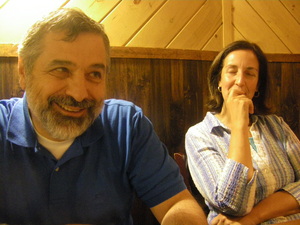

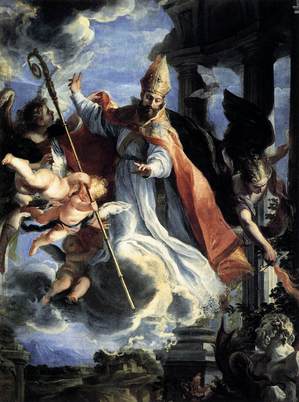
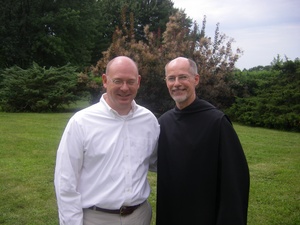
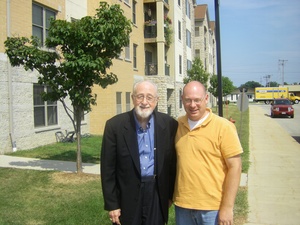
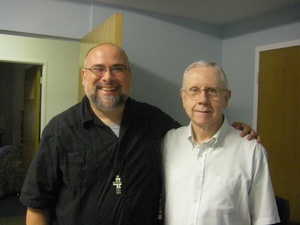
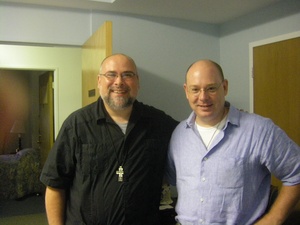
![St Monica Andrea Verrocchio[1].jpg](https://communio.stblogs.org/assets_c/2010/08/ St Monica Andrea Verrocchio[1]-thumb-285x343-7110.jpg)